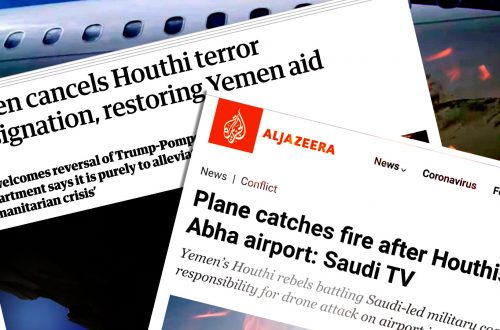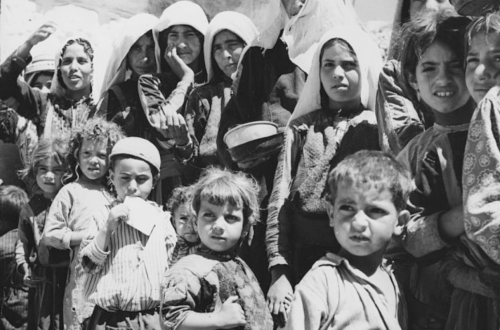Cross-posted from Aymenn Jawad al-Tamimi
As Yemeni President Ali Abdullah Saleh’s power base continues to crumble, with the defection on Monday of Major General Ali Mohsen al-Ahmar to the opposition and rival military factions deploying tanks in the capital of Sanaa, some commentators now worry that if Saleh goes, Yemen is poised to give Al-Qa’ida the sanctuary it needs. For instance, Rick Moran at the American Thinker makes such a case on the grounds that the ‘army and the president were stout opponents of the terrorists’. Is this a valid point?
On the contrary, Saleh has hardly been a staunch U.S. ally. At best, it could be said that he merely played a double game with us, allowing the U.S. to carry out drone attacks against Al-Qa’ida in the Arabian Peninsula (AQAP) hideouts in Yemen on the one hand whilst diverting aid, specifically intended for cracking down on AQAP, to suppress domestic opposition with no links to Al-Qa’ida on the other. In fact, disclosures from the leaked U.S. diplomatic cables illustrate that U.S. officials have long been aware of this. For example, Stephen Seche, who was the American ambassador to Yemen in the period 2007-2010, noted in one cable that Saleh was using a commando group (funded and trained by Britain and the US since 2002 to fight Al-Qa’ida) — and perhaps American Humvees — against the Houthis. The Houthis are a Shi’a movement in the north of the country that began a revolt in 2004, primarily in opposition to what they regard as discrimination by Saleh’s government against the north in terms of jobs, development and lack of political autonomy. They have no links to either Iran or Al-Qa’ida.
Saleh has frequently conflated both the Houthi rebels and the southern separatists with Al-Qa’ida. In a meeting in September 2009 with White House counter-terrorism advisor John Brennan, Saleh specifically pressured the US to provide armoured vehicles, airplanes and ambulances for his campaign against the Houthis. Brennan rightly rejected Saleh’s pleas, affirming that the U.S. considers the Houthis to be ‘a domestic insurgency’.
As for the southern separatists, there is little evidence even of substantial support for any brand of Islamism. In contrast to most of Yemen, where Islamic orthodoxy is strong and the niqab (face veil) is widely worn, women amongst the southern separatists still claim the educational, professional and social freedoms they enjoyed under the old Marxist regime of South Yemen. Al-Qa’ida figures backed Saleh in the civil war in the 1990s that united Yemen under his rule, and regard the idea of a new state in the south as contrary to the ideals of a united Ummah (Muslim community).
Meanwhile, Saleh has proved himself remarkably tolerant of Al-Qa’ida figures in Yemen, pursuing a strategy of trying to co-opt rather than eliminate them. At lunch with a US envoy in 2007, he openly bragged about having met with Jamal al-Badawi for a friendly chat only two weeks earlier. Badawi was the chief Al-Qa’ida member responsible for orchestrating the bombing of the USS Cole in 2000 that killed seventeen people. Although Saleh went on to assure that the envoy Badawi was under house arrest, the militant’s whereabouts today are unknown.
When one considers Saleh’s authoritarianism, corruption, misuse of Western aid, and double game with AQAP, it is clear that there is no case to be made from the point of view of U.S. interests to ensure that he should remain in power. Instead, a new approach towards Yemen needs to be adopted.
First, U.S. officials must come clean and admit publicly that they have known for a long time of Saleh’s misuse of aid and his double game with AQAP. Second, they should now encourage Saleh to step down from power. AQAP is unlikely to make any new gains in the transfer of state authority to the planned civilian-led transition government as part of a deal that Saleh is apparently negotiating with General al-Ahmar. We should then urge the transition council to work towards some form of political reconciliation with both the Houthi rebels in the north and the southern separatists (perhaps considering, say, decentralisation of power from the capital and granting these groups greater autonomy), and to focus all military efforts on dealing with AQAP. In particular, it needs to be stressed that no aid will be given if the new government diverts it away from fighting AQAP towards solidifying its own grip on the nation.
Moreover, we must point out that if the transition government repeats the errors we (and the new predominantly Shi’a Iraqi leadership) made in post-Saddam Iraq — that is, pursuing punitive policies against those tribes and factions that backed the old regime — the AQAP insurgency will only gain momentum. All the major factions in Yemen share a common enemy in AQAP, which is opposed to both the southern separatists and the Houthi rebels, and should thus aim to set aside their differences at least concerning the threat of AQAP. Furthermore, the U.S. should agree to halt drone attacks, which, as trends in Somalia and Pakistan show, tend to undermine rather than strengthen American allies. At the same time, a stern warning should be issued to AQAP that any further aggression emanating from their militants against the U.S. will be met with severe retaliation.
By adopting such measures, the threat of AQAP will at least be isolated and contained in Yemen, thereby safeguarding our security interests in the south of the Arabian Peninsula.

